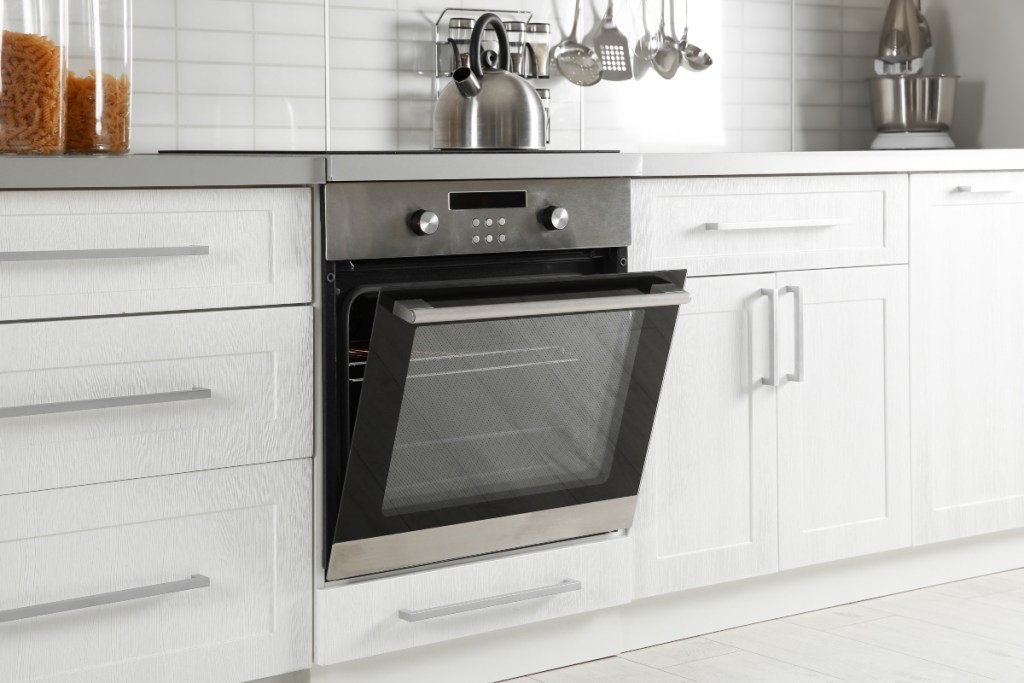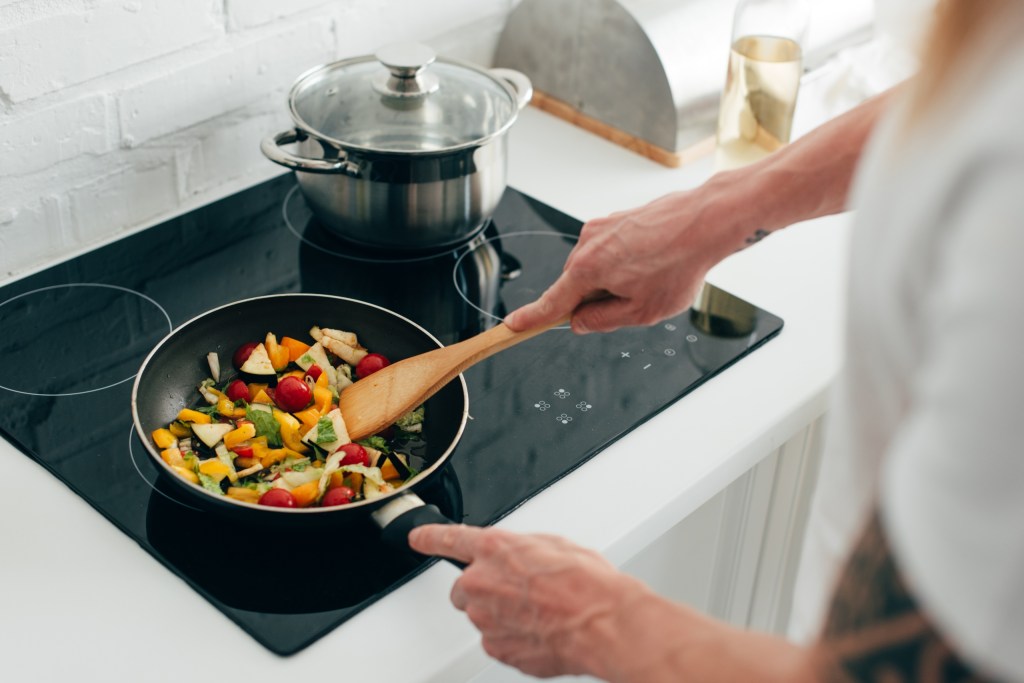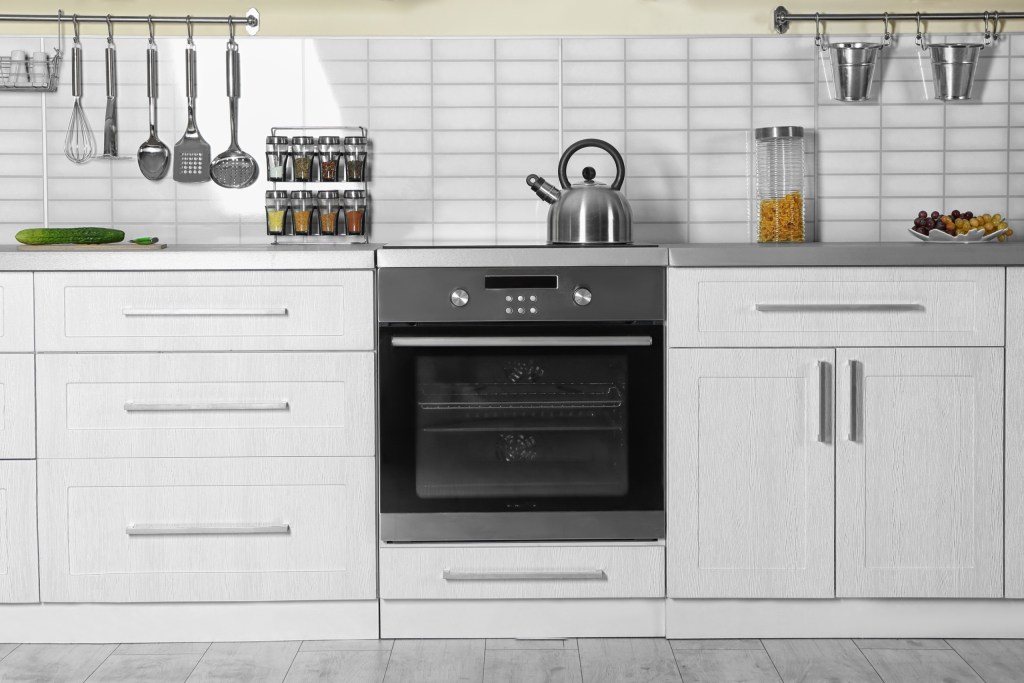Whether you’re moving into a brand new home and need to put in a stove or it’s time to replace your old one, choosing between a gas stove and an electric stove can be a significant decision. One of the key considerations that often come into play is the price tag. In this guide, we’ll dive into various aspects of gas stove vs electric stove cost to help you make an informed decision before bringing a new stove into your home.

Gas vs. electric stoves: Installation costs
One of the first things to consider when choosing between an electric stove and a gas stove is the start-up costs. While installing either stove will cost something, it is important to note their differences upfront.
Gas stoves operate by connecting to a gas line to function. The cost of installing a gas stove is dependent on a few vital factors. First, if you already have a gas line in the location you want your gas oven, then you can expect the process to be less costly. Alternatively, if you don’t have a line at all or the connection needs to be moved, you might expect to pay a bit more. Depending on your situation, you could expect to spend upwards of three thousand dollars to install a gas line and connect it to the oven and stovetop.
Electric stoves, on the other hand, operate through an electrical connection. This is far easier to install if necessary and often requires less time and expense. On average, installing an electric stove can be anywhere from one thousand to two thousand dollars.
Winner: If you’re looking to save money with upfront costs, the electric stove would be a more suitable option.

Gas vs. electric stoves: Operating costs
Thankfully, installation costs are a one-time fee. However, just because you paid for the stove to be put in doesn’t mean the expenses are over. Both gas and electric stoves require additional operating costs throughout the year.
This section is a bit more open-ended. Usage is a variable component and can be difficult to measure for the average household. Additionally, there are several models of electric ovens, and each operates with a different amount of wattage. To best compare the operating costs of gas vs. electric stoves, we will use a general guideline that may be expected for each. However, a greater comparison may be gathered by speaking to an expert in energy-efficient homes.
On average, the operating cost of using a gas stove in one month may average to around fifteen dollars. This is the expected price of gas usage a household may utilize during a thirty day period. Alternatively, an electric stove may cost forty-five dollars in one month as the electrical hookups are less energy efficient than the gas line within a gas oven.
Winner: When it comes to monthly operational costs, gas ovens are less expensive and more energy efficient.

Gas vs. electric stoves: Time to reach temp
One important consideration between gas and electric stoves is the time required to heat up and reach the desired cooking temperature.
Typical gas ovens take about ten minutes to preheat. The stovetop itself reaches temperature instantly thanks to the direct gas line. As soon as the burner is turned on, the heat is ready to go. However, the downside of a gas stovetop is that you can’t adjust the temperature perfectly. Instead, you have to rely on the height and abundance of the flame to cook your food as needed.
In contrast, electric ovens take an average of 20 to 30 minutes to preheat, and the electric stovetop can take around 10 minutes to reach a temperature hot enough for cooking. The delay comes from the fact that electric stovetops use coils that are heated up by the use of electricity. The most beneficial aspect of electric stoves is that you can often set the desired temperature to the degree and don’t have to worry about variating temperatures of heat fluctuations.
Winner: If you want an oven that heats up quickly, a gas stove will be the option for you.

Gas vs. electric stoves: Safety
Safety is a high priority for many people when it comes to choosing a stove. While both electric and gas stoves are much safer today than in the past, there are still some differences between them.
A gas stove has an open flame, which many people find to be a bit dangerous. It makes it easier to set fires to things accidentally or raises worry if young children or animals are present. Gas stoves also operate with a combustible fuel source, which can cause fear in many. This also means that gas stove owners must be aware not to put items like cooking sprays or pressurized items near the appliance.
Electric stovetops are also dangerous. The hot coils can still cause severe burns if the skin were to come into contact with them. Additionally, some electric stoves will automatically cool when the desired temperature is reached, causing the coils to turn grey and appear unheated. An accidental touch can really hurt.
Furthermore, power outages bring about their own problems. In a power outage, electric stoves are inoperable. However, gas stoves may still be used, depending on the model, as they are not powered by electricity.
Draw: Safety is a challenging component to measure. Both appliances are safe if you follow the proper oven cleaning, care, and usage tips. Still, many people consider electric stoves to be a safer option.

Gas vs. electric stoves: Longevity
Electric stoves generally have a longer lifespan before needing repairs or replacement compared to gas stoves. On average, electric stoves can last 13 to 15 years with regular maintenance, thanks to their simpler design and fewer components prone to wear and tear. Gas stoves, while durable, tend to require more maintenance and can have a lifespan of around 10 to 12 years.
Draw: The longevity of both stoves heavily depends on usage, the quality of the appliance, and how often you clean your stove and care for it. Regular cleaning and servicing can extend their lifespans, ensuring many years of reliable cooking performance from both.

The bottom line
Overall, gas and electric stoves perform the same functions that allow you to cook or bake as needed. They are both generally safe and sought-after kitchen appliances that share many similar dangers one might expect from a tool that provides high temperatures. If you’re choosing between installing a gas or electric stove, the final decision will be up to you, your budget, and your household’s personal needs.
If you want a more affordable option, the electric stove will be the way to go. Similarly, if you want a stove or oven to operate during a storm or require less operational cost, the gas stove will be best for you. Both stoves provide unique benefits and drawbacks. Ultimately, they are both great stoves that will allow you years of excellent home-cooked meals.




